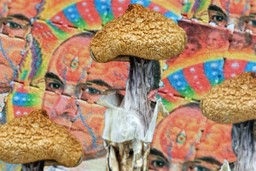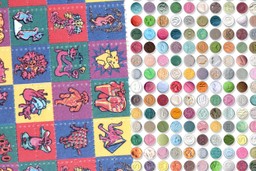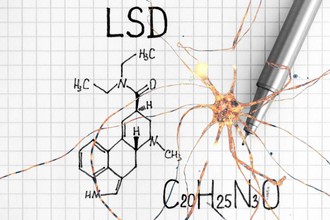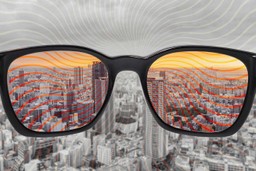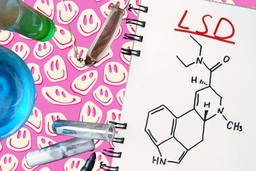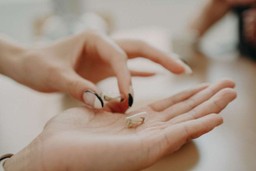Want to learn more about psychedelics such as LSD? You’ve come to the right place.
Our free and extensive library contains over 300 articles written by health professionals and the psychedelic community. Psychedelic Support resources are growing every month. It can be overwhelming to find what you need.
That’s why we’ve created a roundup and summary of the top 10 articles we have written about LSD. Before we begin, let’s do a quick recap about this psychedelic.
LSD, or Lysergic acid diethylamide (LSD-25), is a powerful hallucinogenic drug. It belongs to a class of drugs known as psychedelics. The effects can include altered perceptions of time and space, visual hallucinations, and changes in thought processes.
History of LSD
LSD was first synthesized by Albert Hofmann in 1938. However, its psychedelic properties were discovered in 1943 when Hofmann accidentally ingested a small amount. LSD is famous for its role in the counterculture movement of the 1960s. Specifically, it gained popularity as part of the psychedelic and hippie movements and is often associated with the term “acid.”
Therapeutic Benefits and Risks of LSD Use
Recently, there has been renewed interest in researching its potential for mental health treatment. Some studies suggest that psychedelics, including LSD, may have therapeutic effects for conditions like depression, anxiety, and neurobiological trauma.
LSD use is associated with several risks. These can include “bad trips” characterized by intense anxiety or paranoia, impaired judgment leading to risky behavior, and hallucinogen persisting perception disorder (HPPD is a phenomenon where individuals may experience hallucinations long after the drug has worn off). LSD can also trigger underlying mental health issues in susceptible individuals.
Moreover, LSD is illegal in many places, and its unregulated production raises the risk of contamination or distribution of other substances.
Learn how to get legal psychedelic therapy.
It’s crucial to note that the legality, risks, and potential therapeutic uses of LSD can vary across different jurisdictions, and its recreational use is not endorsed or supported. If you have any specific concerns or questions, it’s advisable to consult with a healthcare professional.
Now, let’s get into the top 10 Psychedelic Support articles about LSD. Enjoy the dive and happy exploration!
1. LSD vs. Psilocybin
Do you wonder what the differences are between LSD and psilocybin? Both psychedelics have practical uses and have shown potential benefits in recent research. Here’s an article that compares and contrasts LSD and psilocybin through the following:
- Origin: Which one do you think is older? LSD or psilocybin?
- Physical Effects: Both LSD and psilocybin are partial or full agonists on serotonin receptors but differ in cardiostimulant properties.
- Mental Effects: Guess which one tends to cause more ego death?
- Current use and perceptions: Both have been pushed underground since being DEA-scheduled; however, their use has been increasing in recent years.
- Applications in psychedelic therapy: LSD and psilocybin are being researched to treat diagnoses.
Read the full article about LSD vs. Psilocybin!
2. Comparing MDMA and LSD
Acid, Molly, or Ecstacy? Both MDMA and LSD are engineered substances. However, there are distant differences between the two compounds. This article dives into the following:
- Origin: Find out which one was famously used as a truth serum by the US Army and CIA.
- Physical Effects: MDMA uses a different mechanism than LSD to increase serotonin release.
- Mental Effects: One of them creates more feelings of closeness.
- Current use and perceptions: Why do you think LSD increased in use between 2015 and 2018 among millennials and older adults?
- Applications in psychedelic therapy: MDMA has shown promising results in treating PTSD. LSD may be effective for alcohol use disorder.
View the full article about Comparing MDMA and LSD.
3. Can LSD Improve Your Learning Potential?
Are you ready for a mind-opening, heavily researched piece that helps you learn about learning? This article explores the current research on LSD’s enhancing effect on human learning.
It first explains classic conditioning and how it is demonstrated through the rabbit nictitating membrane response. Then it describes how the effect of LSD on the conditioned response in rabbits verified its impact on learning.
The article then explores a potential mechanism that may explain how LSD could accelerate learning. Specifically, it describes a study that showed LSD desensitization of the 5-HT2A receptor.
It summarizes a rat and human study that found associations between LSD and novelty-seeking behavior, and neuroplasticity. Lastly, it explains the role of LSD in opening critical periods of learning, post-treatment integration, and learning reinforcement in humans.
Read about LSD and Learning Potential.
4. LSD vs. Ayahuasca Experience: Which Psychedelic Therapy Is a Good Fit for You?
When considering psychedelic therapy, it’s important to find the best fit for your needs. It can be challenging to decide whether LSD or Ayahuasca is the right substance for you.
This article provides a thorough explanation of LSD-assisted therapy and Ayahuasca-assisted therapy. It gives a list of trials that are looking at these substances. Lastly, it offers a chart that compares LSD and Ayahuasca by answering the following questions:
- How do people describe the experience?
- How long does the experience last?
- How has it been used in trials?
- Where is it legal?
Read about about LSD vs. Ayahuasca today.
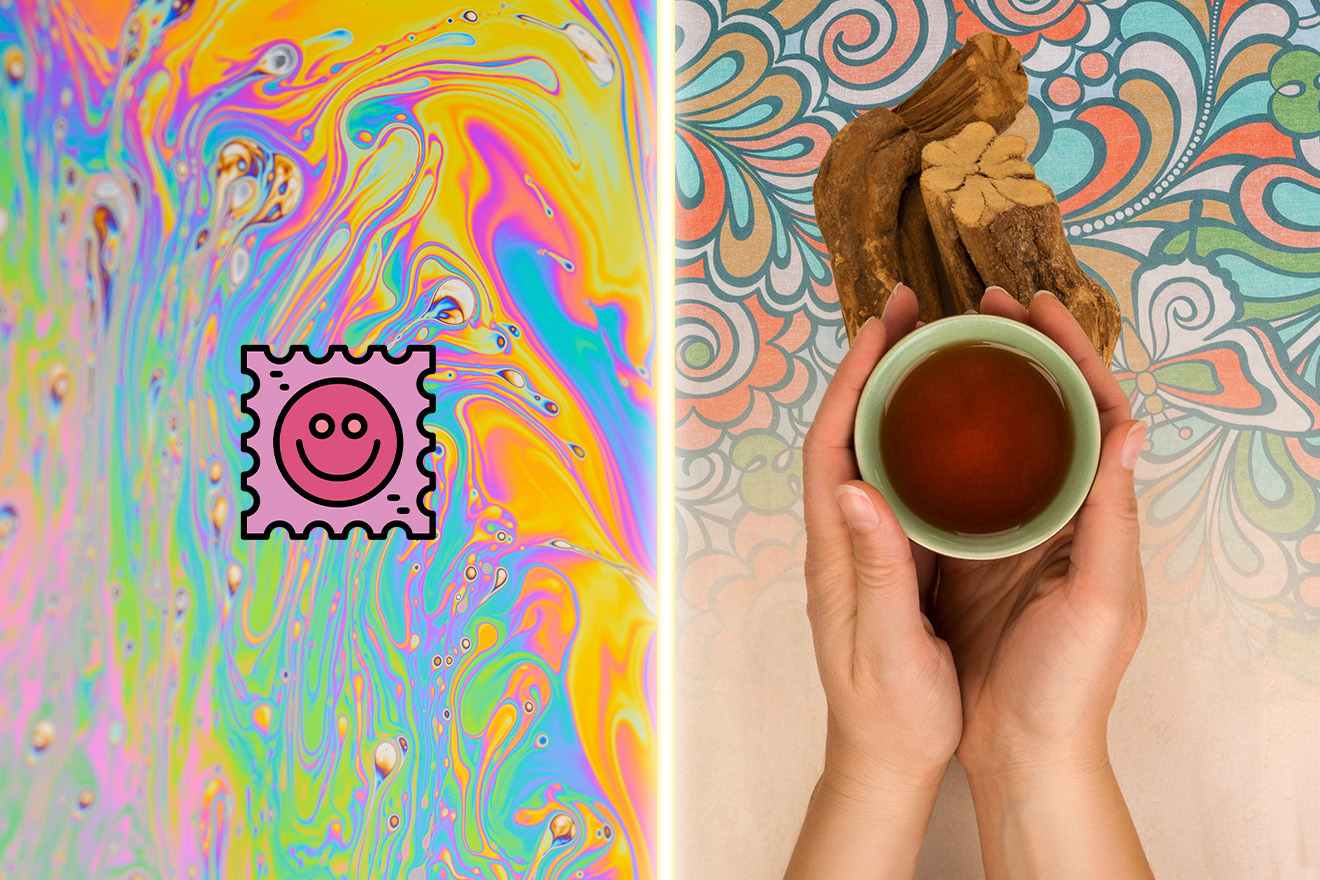
5. Can Psychedelics Cause Psychosis?
You have heard of “bad trips” on acid. So you may wonder if LSD can cause psychosis. This article clarifies exactly what psychosis is and explains why it is a symptom, not a diagnosis. Then it compares what happens in the brain during psychosis versus a psychedelic trip.
The main difference is that people undergoing psychedelics remain insightful and are aware they are going through a psychedelic experience. It goes over the research that explains the association between LSD and drug-induced psychosis.
Learn more About Psychedelics and Psychosis.
6. Can Psychedelics Help With Color Blindness?
You’ve probably heard about the enhanced color perception effect that occurs during a psychedelic experience. For instance, synesthesia occurs when someone hears music and sounds as colors or sees numbers or letters of the alphabet as a certain color. So does that mean psychedelics can help a person who is color blind see colors?
This article discusses the research behind the claims. This might be a fun one to bring up at your next dinner party.
Read the article about Psychedelics and Color Blindness now.
7. What is Microdosing, and How Does it Work?
Microdosing psychedelics is becoming a popular practice to improve mental health. LSD is a common substance used in microdosing. This article dives into how microdosing works, it’s potential benefits and adverse side effects, and where the current research stands.
Get the scoop About Microdosing LSD today.
8. Can Microdosing Relieve Anxiety Symptoms?
From celebrities, podcasts and Reddit communities, many people are speaking out about how microdosing LSD has helped their anxiety. However, anecdotal evidence isn’t probably what you’re looking for; therefore, this article breaks down the current scientific research on microdosing and anxiety. It summarizes studies with contradictory results, showing that microdosing LSD has the potential to increase and decrease anxiety.
Learn the truth about Microdosing LSD and Anxiety in this article.
9. The Diagnosis: Our Toxic Society
If you want to read about a first-person LSD experience, join Sonia Hsieh, LCSW on her journey to healing from a toxic society. It starts in Costa Rica where Sonia’s been invited to a really cool party. Just as everyone was coming up after a feast, the cops showed up and she ended up driving home and spending the rest of her trip alone.
She recounts how LSD helped her understand her ego, how it seduced her into thinking there is something wrong with her, and how we can choose to upgrade our souls by listening to nature and prioritizing the relationship we have with ourselves.
Immerse yourself in Sonia’s LSD Story.
10. How To Join a Psychedelic Clinical Trial
Finally, you may know a lot about LSD already and are interested in participating in a clinical trial. Look no further because we created an up-to-date and searchable clinical trials database.
You can filter by substance, location, condition, and enrollment status. Studies are displayed on a map and list. You can also find more information about enrollment on clinical trial sponsors’ websites or clinical registry sites by country.
Check out our Psychedelic Clinical Trial Database.
That wraps up our top 10 articles about LSD. As more conclusive results are published from studies and the psychedelic landscape evolves, we will continue to update this list with the most current research about LSD.


